
In the mid-’90s, Canadian Deborah Cox was arguably the pop and R&B singer most likely to follow in the global-superstar footsteps of Whitney Houston. She scored a string of big hits — including “Sentimental,” “Who Do U Love,” “Nobody’s Supposed to Be Here,” and “We Can’t Be Friends” — before slipping off the pop and R&B charts and under the radar in the early 2000s.
Although she’s kept busy performing on stage, paying homage to Houston (her late friend and colleague) on various projects, recording sporadic dance hits, and making occasional Gay Pride appearances, Cox hasn’t released a new record of original material since 2009’s The Promise. Tick tock, tick tock …
Well, the wait for a new full-length Deborah Cox album soon will be over. The 45-year-old has a new single, “Easy Way,” and she’s working on her sixth album for release in 2020. Queerty talked to Cox about her career ups and downs, her relationship with Whitney Houston, and, of course, her loyal gay fans.
First of all, you look ridiculously amazing on the cover of your new single “Easy Way.” You actually look better than you did in the ’90s! What is your secret?
How about we take this to the next level?
Our newsletter is like a refreshing cocktail (or mocktail) of LGBTQ+ entertainment and pop culture, served up with a side of eye-candy.
My secret is love. I’m in a really good place, loving on myself and taking care of myself. I’ve been surrounding myself with people who are positive and encouraging. I’ve preserved the positivity, and I think when you’re in a good space, it has no choice but to come out.
Your voice sounds very smoky and sexy on “Easy Way.” It’s quite different than it was on your early recordings. Is that a hint of what’s to come?
You’re gonna get a kaleidoscope of vocal stylings. I’m not one to stick to any particular style. I consider my voice [to be] an instrument, so an instrument can play different styles, different songs, different melodies and have different tonality. “Easy Way” was me exploring a much lower, smokier tone, and I had fun. It’s an easy song to sing. Not every song should be hollering.
At one point in your career, you seem poised to maybe be a gay icon … or an R&B superstar … or a dance diva, but you never really went completely in either of those directions. Were any of them appealing to you, or were the shifts by design?
Absolutely by design. I came up in Toronto, and I lived in a Caribbean household where we listened to all different styles of music. The icons I grew up listening to were Marvin Gaye, Whitney Houston, Bob Marley. They all sang different styles of music. They didn’t just stick to one thing. Tina Turner when she came back out – and I’m referring to her because she just came out with her musical [Tina: The Tina Turner Musical], and I went to see it – ”What’s Love Got to Do with It” was like a reggae vibe, and she was in her mid forties when she released that. I’m a messenger more than a singer, and I think that wherever that message is, if it’s in a gospel song, if it’s in an R&B song, if it’s in a dance song, I think I’m the vessel that brings that message to the world, and it doesn’t have to come through one type of voice.
When your new single was announced, a lot of people probably asked, “What happened to her?” But you never really stopped working, did you?
No. I just continued working in a whole different lane. I did take some time away from the studio and the recording life, because, well, for one, I wanted to get back to musical theatre, which is something that I loved and started doing back in the day. I did Aida on Broadway, and I did Jekyll & Hyde, and I did The Bodyguard musical, and those were projects I was really passionate about. I quickly learned that time wouldn’t permit me to record an album while doing all that touring. It was just too much.
You haven’t released an album of new material since The Promise in 2008, and the industry has changed so much in 11 years. Does it scare you to come back to a totally different game?
Not at all. I embrace change. I like change. I like evolution. The only change I don’t embrace is the Apple update [laughs], updating my phone, but in life, I think it’s good to embrace things that are different and things that change because it keeps things interesting. I’ve already embarked on so many things that scared the s–t out of me. Doing The Bodyguard musical scared the crap out of me, stepping into that arena and having to fill Whitney Houston’s shoes. Singing all those songs scared me. Releasing music on digital platforms and social media and all that stuff doesn’t scare me at all. I’m able to also control the narrative and control what I want to put out there as opposed to having these gatekeepers, meaning [record] labels, who filter out certain things. There’s a lot of people that just get in the way.
You’re early albums were on Arista Records, and Clive Davis, who was then the head of the label, is known for playing a heavy hand in his artists’ careers. Did you butt heads with the higher ups at Arista?
Well, I was so much younger and so naïve, and I was just a sponge and eager to learn everything. There wasn’t a lot of struggle. I think the only time we kind of butted heads would be more creatively when … I’m a songwriter as well. I never put a whole lot of emphasis on it because I understand that a hit song is not always going to come from me. It might come from someone else who is watching from the outside. Looking at my career from a different perspective, I’ve always been open to writing, and those were the moments where we kind of butted heads. I would present a song that I wrote, that I felt really excited and strongly about, and the label would be like, “It’s cool.” They were not excited about it. So it was like, “Oh, OK. Well, I guess that song’s not going to be on the album.” But I don’t have any regrets about the way things turned out because I had some tutelage and was under some great people in the business that really steered me in a direction where I didn’t end up crazy and broke.
Back then, in those early days, everyone touted you as the next Whitney Houston. But then the hits quieted down after your 2002 album The Morning After. What happened?
I decided to have children and have my family. During The Morning After, when we shot the video for “Up and Down,” I was pregnant. I didn’t say anything because I was willing to follow through with promotion and do everything that I had to do. We released “Up and Down,” “The Morning After,” and “Play Your Part,” and then I told the label. They were very supportive and allowed me to take the time that I needed to rest and have my son. Had I not done that, I wouldn’t have the family that I have today. At that point in life, I’d had the hits, but I wasn’t fulfilled. I wanted children, so we started to slow down the train a bit to take the time to have babies. I thank God for that because now my kids are 16, 13, and 10, and they’re everything. Family is everything to me.
But do you ever regret not having gone after the Whitney or Mariah Carey mega-superstar career?
Oh, no. No child. That is a lot of pressure, like that Beyoncé kind of success. No, it’s too much. Too much. That is not my personality. That’s not me. I’m a hard worker, but I don’t want to have to be on all the time, and that kind of superstardom is isolating. It can be depressing because you have to constantly be on and constantly think about the next and the next and the next, and when is it enough? My moments were being in the studio with Whitney to record the duet [“Same Script, Different Cast”]. And being able to meet Oprah. There were so many amazing things that have happened through my career that people don’t know about that to me are milestones and are my Grammy moments. I’m good with that. I don’t need to have the kind of success that leaves me isolated where I can’t leave my home. That’s not fun for me. I want to go pick up my kids from school. I want to go on vacation and not be harassed by paparazzi.
Speaking of Whitney, what was it like working with her on “Same Script, Different Cast”?
Wow. Well, she was really funny. She was one of those women that really celebrated sisterhood. She wasn’t catty. She wasn’t like that at all. She was a very supportive person. And you always felt that energy from her whenever you met her, and a lot of the times when she came to Miami, because she had a place here, we would connect, and we would hang out and stuff. Especially around the time when we were in the early 2000s, she was here a lot. We got a chance to really get to know her. She was just a light, just somebody that made you feel really special in her presence, made you feel like you were the only one in the room.
And like Whitney, you have a huge gay following. Why do you think gays connected with your music?
I think it really spoke to everyone’s situation. A lot of the people in the gay community were not living their authentic lives. They were not being who they really truly are. I think the songs helped them to come outside of themselves and really examine the person they wanted to be. A lot of the songs had this empowering message: You know, “Things just ain’t the same, but I’m gonna pick up myself.” There was always something very empowering. When people heard the music, they were like, “Okay, I’m hurting right now, but I can still get up and move forward.” And, “Hey, my family doesn’t know that I’m gay, but I’m going to go and live my life, and I’ll find the right moment to tell them.” I’ve heard so many different stories about the songs and how the music’s touched them, so I feel like it’s really just about the songs resonating with them.
Do you have any favorites?
“Absolutely Not” is a favorite. “Things Just Ain’t the Same” is a favorite. “Nobody’s Supposed to Be Here” is also a favorite. That was the first time that I heard a remix that actually sounded like that was the way the song was written. It was its own thing as an R&B record, and it was its own thing as a dance record. And those two audiences never knew each other on the dance floor. They never went to the same party. It was like two completely different songs. That’s what I love the most about it.
“Absolutely Not” sort of presaged the #MeToo movement with the line “If I go to work in a miniskirt, am I giving you the right to flirt?” How do you feel about coming back at a time when women are so much more empowered than they were 20 or even 10 years ago?
The whole movement is “on fleek,” for lack of a better term, yes. But I think that women have become more brave, and every generation becomes more brave to face all these things that are set in place to hold you down, to oppress you. And I think the gay community found that voice through music. And while they have been beating the drums and marching and fighting, through music, they’ve also been empowered and have been able to help tell their narrative. And that’s been a part of why they’re finally in a place where they’re heard, and they’re now part of the mainstream as opposed to being part of the fringe.
What are your hopes for the new album?
I hope it reaches as many people as possible. Music has the potential to just penetrate anything. And it can disarm you, and I want this music to disarm. I want it to penetrate. I want it to break down walls and forge love and positivity.







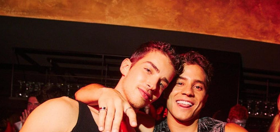
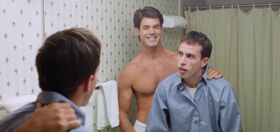


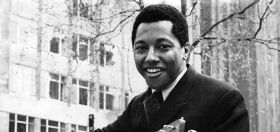
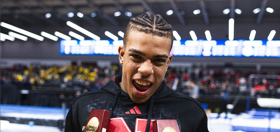


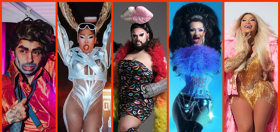

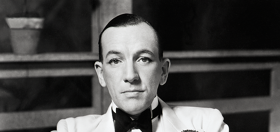
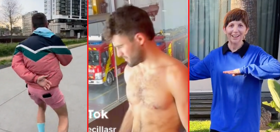


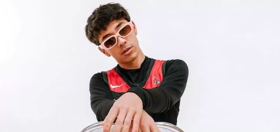
mz.sam
“Not every song is about hollering.” On that note, Ms. Cox is absolutely right. ..meaning, she’s been eclipsed by the new Grammy nominee alternative artist, BILLIE EILISH.